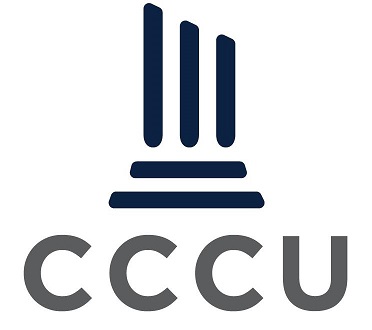Leadership Profile: The Council for Christian Colleges & Universities
November 2, 2021
The Evangelical Immigration Table is a coalition of 10 Christian organizations that have come together to encourage distinctly biblical thinking about issues of immigration, provide discipleship resources and advocate for public policies consistent with biblical values. Each of these organizations brings a unique perspective and focus to the Table. Over the next several months, each of our EIT leadership organizations will be answering some questions to help us better understand who they are, what they do, why they care about immigration issues and how they came to be involved in the EIT. Today, we continue this series with an interview from The Council for Christian Colleges & Universities.
leadership organizations will be answering some questions to help us better understand who they are, what they do, why they care about immigration issues and how they came to be involved in the EIT. Today, we continue this series with an interview from The Council for Christian Colleges & Universities.
Can you tell us a little bit about The Council for Christian Colleges & Universities?
The Council for Christian Colleges & Universities (CCCU) is a higher education association founded in 1976 representing over 185 institutions around the world, including more than 140 in the United States. Our institutions enroll approximately 520,000 students annually, with over 3.6 million alumni. The CCCU’s mission is to advance the cause of Christ-centered higher education and to help our institutions transform lives by faithfully relating scholarship and service to biblical truth. We are committed to graduating students who make a difference for the common good as redemptive voices in the world. As the leading national voice for Christian higher education, we provide a unified voice to highlight the contributions of our institutions, and of our students, to the common good.
We advocate for the right of each CCCU institution to practice its sincerely held religious beliefs and to participate fully in the public square without penalty. Our advocacy priorities stem from our desire to support our campuses and our students, staff, and faculty. We work to ensure institutional autonomy and religious freedom for all of our members. We support the expansion and continued support of Pell grants to allow students of all socioeconomic backgrounds to attend the colleges and university that is the best fit for them, including a faith-based institution. We support charitable giving at all levels for all individuals, with private institutions relying on these gifts to provide aid and opportunities for students. Many CCCU institutions work in prison education to support and empower incarcerated individuals through learning. Our immigration initiatives work for permanent protections for Dreamers, restitution-based immigration reform, and a welcoming environment for international students. In addition to our advocacy work, the CCCU also offers professional development and scholarship, experiential education, and we tell the story of Christian higher education.
Why does your organization believe that it is important to care about immigrants and immigration issues?
As Christians, we are called to care for those who are most vulnerable. Jesus says in Matthew 25:40, ‘whatever you did for one of the least of these brothers and sisters of mine, you did for me.’ At the CCCU, we believe the biblical truth that each person is created in the image of God (Genesis 1:26), implying dignity, value, and worth no matter their nationality or legal status.
These Biblical convictions motivate the CCCU to strive for just and compassionate immigration reform, particularly for students that wish to pursue higher education, some of whom are in the United States illegally through no fault or decision of their own. These students who love to learn, want to give back to America, and show tremendous courage in the face of insecurity are a blessing to our Christian colleges and universities. Our work at the CCCU includes advocating for Dreamers, Restitution-Based Immigration Reform, and International Students on behalf of all of our member institutions.
How did your organization get involved in the EIT?
The CCCU is proud to have been a part of leading the EIT for many years. We have tremendously enjoyed collaborating on how to care for the stranger, the orphan, and the widow, particularly in regards to Christian higher education. We deeply appreciate EIT’s biblically robust framework of immigration that informs minds and persuades hearts.
What do you hope to see the EIT bring to the immigration conversation?
We hope that the work of the Evangelical Immigration Table continues to guide Christians in loving God and our neighbors and to do justice, love mercy, and walk humbly (Micah 6:8). We know from past survey results that many evangelical Christians disproportionally inform their views on immigration from external media influences and political affiliation more so than the truth of God’s word. We are proud to partner with EIT in helping Christians think biblically about immigration.
Immigration and immigration reform are extraordinarily complex topics, yet we have a God who is not scared of complexity. It is hard work but good work. We are grateful for the ways that EIT has encouraged us in this hard work and hope that the Table will continue developing awareness and conviction about immigration among Christians today.
Anything else you would like to share about your work with immigrants and refugees?
We are excited to partner with the Beacon Fund to help Christian college students from CCCU schools think about “welcoming the stranger.” In 2020, we collaborated with World Relief and other organizations to encourage students and faculty to think biblically about immigration at regional and virtual summits. Currently, we are uniting with both EIT and World Relief to continue educating undergraduate students about immigration through both theoretical and experiential learning in winter 2022.
Additionally, the Government Relations Team at the CCCU continues to advocate alongside EIT for robust, bipartisan, comprehensive immigration reform and a secure, permanent path forward for Dreamers.






